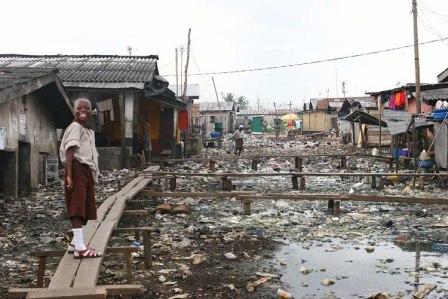
Hurrah! $510 billion! Yipee! Nigeria is now Africa’s #1 economy blah…blah…blah. We are not even remotely amused. The question for the average Nigerian is have you eaten today? And 9 out of 10 times, that answer is a resounding, “oga I never chop?”
The whole exercise brings out the Shakespearean bone in my body as the hype can be summed up as ‘Much ado about nothing’.
Whilst any learned man can appreciate how the economy rebasing or recalculation is a positive move, mathematically sound and vital to get a true picture of the value of a country, it can still be argued that the whole exercise is worthless if the effects have not as at yet been felt by the average man.
From the sheer number of private jets that littered the Port Harcourt airport last weekend in order for their occupants to grace the wedding of President Goodluck Jonathan’s foster daughter, you know Nigeria is a special country. There were probably more private jets at the venue, than there are in the Fortune 500 executives’ hangars.
However consider the fact that the cost of the trips in one of these jets can educate several communities via the provision of classrooms, provide water to several communities, and good network of roads in addition to connection to the National Grid (for when the grid commences to become a thing a Nigerians can be proud of or have utility in).
There is a widely acknowledged problem in Nigeria where you have an upperclass comprising of not up to 10,000 people who control the bulk of the country’s production via the consistent criminal plundering of communal resources. Oil is a lost cause in Nigeria, many visionaries both domestic and foreign are already looking towards new avenues to exploit the vast opportunities in the country. But oftentimes key policy makers are immersed in corruption scandals or too busy preventing said immersion. There is almost no hope for the investors that seek an enabling environment to do healthy business transactions free of graft.
Unless the National Assembly gets serious about its law making functions and oversight, there will be no meaningful change for the average Nigerian. Impunity must be reigned in, toes must be stepped on. Most importantly, insecurity has to be nipped in the bud and you cannot do that without the proper funding and training of your security agencies. Recently soldiers told a foreign news organization secretly that senior army officers and bureaucrats in Abuja collabo to corner big military contracts to their immense profit. Meanwhile the soldiers on the front line are getting slaughtered because the key stakeholders are more interested in profiting from billions oof dollars in defence contracts than actually defending the tehns of thousands of people dying from conflicts raging as a result of insecurity.
A civil war is already raging in parts of Northern Nigeria. If you doubt the sincerity of that statement, just ask Google. Literally conduct a Google Images search for the phrase “massacre Nigeria”. Although first be warned that it is no playground of anything but evil, the images you see will be burned in your memory and disturb you for days. No matter how much regular viewing of such images on blogs may have deadened your senses. There is a war going on outside no man is safe from, and the sooner the economic effects of having the world’s 26th largest economy begin to be felt by the ordinary man on the street, the lesser the risk of a civil implosion on all our heads.
The symptoms of poverty are felt in every nook and cranny in Nigeria and there is unrest amongst different groups of people for lack of opportunity. Members of Niger Delta kidnap gangs have severally blamed government for providing no jobs as the catalyst of their actions. When people cannot make an honest living, they resort to the black market for jobs and the black market has a job for everybody, armed robbers, car thieves, drug syndicates, assassins, mercenaries and kidnappers are all in huge demand in the Nigerian scene. Even more fascinating is the fact that the black market does not fear the security forces. Oftentimes welcoming them in desperate need of target practice for their sophisticated rifles.
Let us go back to our tents and seek a way to increase the per capita GDP of our country which is $2,668 almost a third of South Africa’s $7,508. What this means is let us find a way to include more Nigerian’s into the economy, by providing them jobs before they get jobs on the black market and make our tents a very unpleasant place to live.


